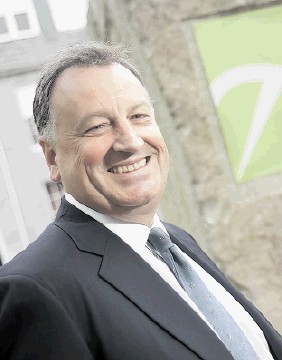
Rotawave, the UK company behind innovative technology to produce biocoal, is challenging a report claiming that burning trees is bad news for the planet.
In the report, Greenpeace, the RSPB and Friends of the Earth claim that the UK Government’s proposals on biomass are flawed and burning wood instead of coal will not reduce greenhouse gases.
But Aberdeen-based Rotawave says that new technology to produce biocoal will significantly reduce emissions and offer a commercially viable and environmentally friendly alternative to coal-fired power stations.
According to Garth Way, technical director, any technology involving combustion will result in the production of carbon dioxide; it’s an inescapable fact. The task therefore becomes how to minimise the amount of fossil fuel combustion that releases carbon.
“One technology under development is to prevent the release of carbon into the environment by collecting it at the point of generation and storing it,” said Way.
“Another technology is to use fuels that maximise the electricity generation but minimise the carbon dioxide generation. The use of biomass as the fuel is effectively using carbon that is already “available” in the environment; this is carbon that is recycled through the natural processes of photosynthesis.
“The use of biomass for power generation is of course already off-set by managed forest husbandry, replanting and utilisation of waste biomass. This is especially clear as we are using existing forests that have been managed for sustainable timber and paper production for decades.”
Way said Rotawave’s TIES (Targeted Intelligent Energy System) technology is already being used to create biocoal as a sustainable and commercially viable commodity in the US.
Based on an efficient system employing the use of microwaves, energy from wood is concentrated in high energy density black fuel pellets, which Energy’s editor has seen.
Wood chips contain less energy per unit volume than coal but Rotawave’s biocoal addresses this issue with high energy content per unit volume much closer to coal.
Way said: “You only need one truck of biocoal instead of six trucks of wood chip to deliver the same amount of energy, greatly reducing the amount of carbon dioxide emissions during transport.
“Many people do not appreciate that the amount of energy required to dry a tonne of wood is ten times less than the amount of energy contained in the wood.
“Furthermore the source of the energy to dry the wood, usually waste wood dust or renewable fuels generated in the processing, is also renewable and so no net carbon dioxide is released.”
But the transport of wood, indeed any materials, requires fuel, However, some companies are now considering using biofuels to remove the environmental impact of this.
“In fact, the more renewables we create, the more we can use them to produce lower carbon fuels, using them to transport the greener fuels around the globe,” added Way.
“Rotawave’s technology is being deployed in areas of dense forestation in North America so we are taking the technology to the trees and removing the need to transport the wood long distances.”
The UK’s Department of Energy & Climate Change has robust rules that require that the total amount of carbon dioxide (or equivalent pollutant) emitted in the entire fuel supply chain is at least 60% better than the equivalent emitted during the generation of electrical power using coal. The measurement is calculated relative to the amount of useful electrical energy generated at the end of the fuel supply chain.
“This means that if you use more wood to generate the electricity this is taken into account in the calculation,” said Way.
“The Rotawave process is 88% better than coal in this respect. This calculation applies to our North American project supplying fuel to the UK and includes energy used for tree harvesting, road transport, drying, ‘torrefaction’, plant construction, start-up fuel, electricity use, railway, trans-Atlantic shipping, power station efficiency, biocoal milling and even ash disposal in the UK after combustion.
“If the wood source would have otherwise rotted, such as diseased wood, then by removing this wood from forests we prevent an additional methane release which further improves the supply chain to 96% better than coal.”
Rotawave’s people believe that biocoal is a sustainable and practical energy source which has a key role to play in future energy mix, offering a low carbon alternative to fossil fuels.
Their technology has been boosted by an agreement with Cate Street Capital, a US private equity company focused on green technologies, to exclusively manufacture and market the technology in the US and Canada.
Rotawave is owned by Energy Environmental Limited, an Aberdeen head-quartered group supplying environmental energy products largely to the oil and gas industry.
Recommended for you
